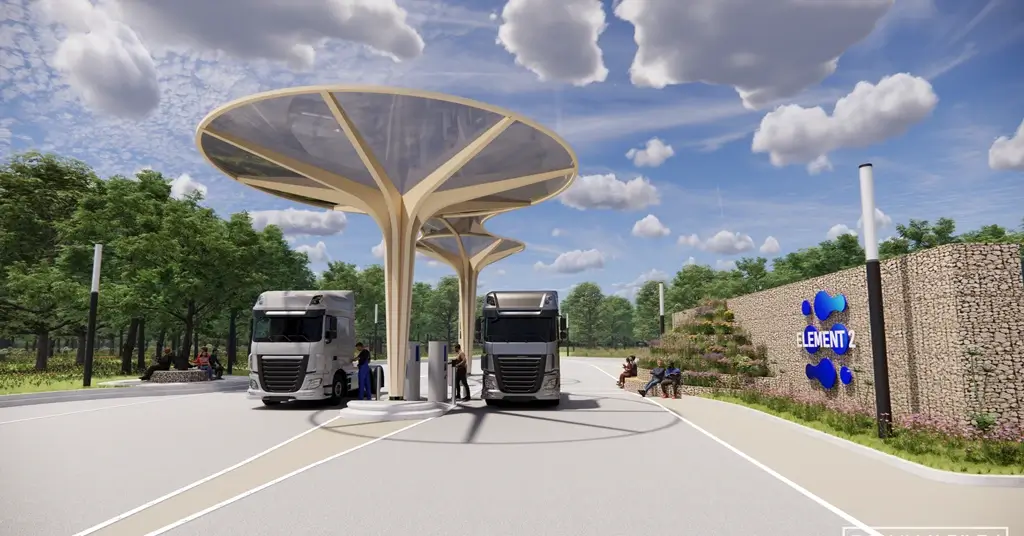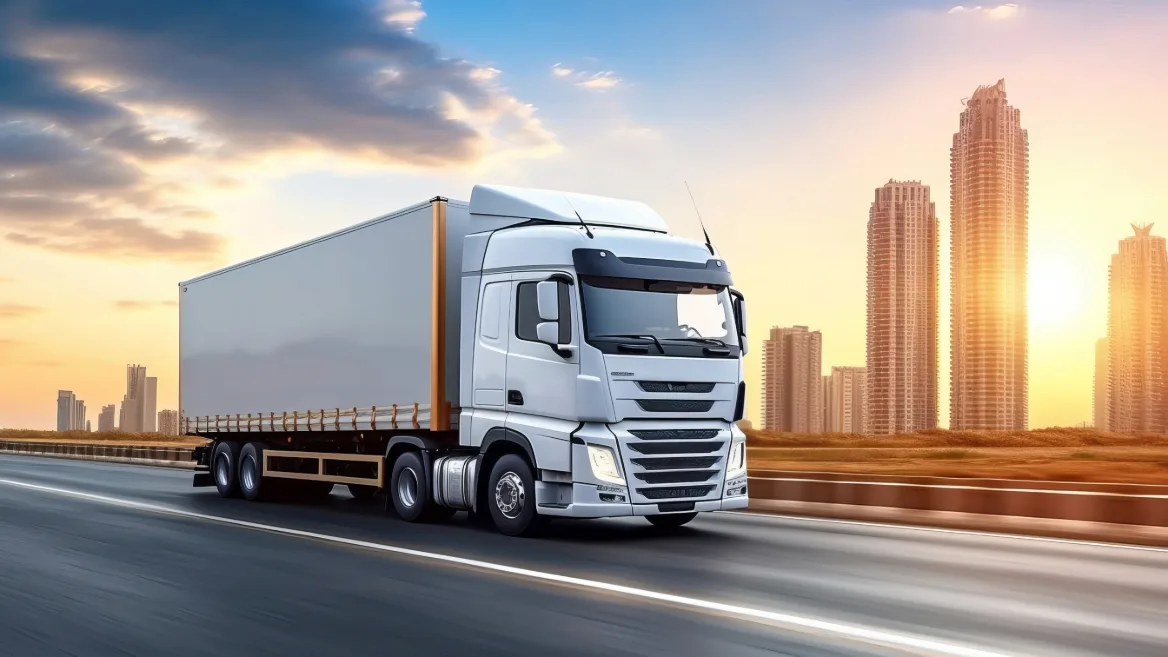The future of the haulage industry is changing, and sustainable fuels are set to play a major role. With rising concerns about emissions and the push for cleaner energy, the shift to alternative fuel sources for haulage vehicles is gaining momentum.
For companies operating medium to large fleets, understanding how sustainable fuels—such as electric and hydrogen—could impact daily operations is important if you want to plan ahead.
This guide will cover everything you need to know about these fuels, comparing costs, infrastructure needs, and what to expect in the future. If you’re thinking about moving away from diesel or looking to future-proof your haulage loads and fleet, this guide will help you make informed decisions.
What we’ll cover
Overview of sustainable fuels for HGVs
Sustainable fuels are quickly becoming the centre of attention in the road freight industry, particularly for heavy goods vehicles (HGVs).
The two main options currently being developed for long-haul vehicles are electric power and hydrogen fuel. Both offer lower emissions than traditional diesel HGVs, making them attractive options for companies looking to reduce their carbon footprint.
Electric HGVs rely on battery-powered motors, producing zero tailpipe emissions. This makes them an appealing option for urban transport and short-distance haulage.
Hydrogen HGVs, on the other hand, use hydrogen fuel cells to generate electricity. While they also produce no emissions, hydrogen HGVs are particularly suited to long-haul transport, thanks to their greater range compared to electric models.
The shift towards these sustainable fuels is not just about emissions, though. The UK government has set ambitious targets for reducing greenhouse gases, and this is pushing companies to consider alternative fuels. Hauliers who adopt electric or hydrogen-powered vehicles early could benefit from grants, tax incentives, and lower emissions-related duties.
Comparing running costs of sustainable fuels vs diesel
The initial cost of purchasing electric and hydrogen HGVs is currently higher than diesel vehicles, but the long-term savings could outweigh this.
Electric HGVs, for instance, have fewer moving parts than diesel engines, leading to lower maintenance costs. They also offer lower running costs since electricity is generally cheaper than diesel fuel.
On the other hand, while hydrogen HGVs are more expensive to purchase, they have lower running costs than diesel due to the efficiency of hydrogen fuel.
For example, while a diesel HGV might cost around £1.50 per mile in fuel, electric HGVs can operate for as little as £0.20 per mile in energy costs.
Hydrogen HGVs sit somewhere between these figures, with current hydrogen prices making their fuel cost about £0.60 per mile.
However, these numbers are expected to change as technology improves and production scales up.
Potential future costs of alternative fuel for vehicles
One of the biggest considerations for haulage companies is what future costs might look like. As the demand for alternative fuel for vehicles increases, economies of scale should reduce both the purchase price and running costs of electric and hydrogen HGVs. Experts predict that battery prices will continue to fall, making electric vehicles (EVs) cheaper to buy.
The hydrogen market is also expected to grow, especially as hydrogen production ramps up and the UK builds more hydrogen plants. In time, the price of hydrogen fuel should drop, potentially making it a more affordable option for long-haul transport. Additionally, the government could introduce further tax incentives for companies investing in sustainable fuels, further reducing operational costs.
Infrastructure challenges for sustainable fuels
One of the major hurdles to the widespread adoption of sustainable fuels is infrastructure. While diesel refuelling stations are available everywhere, the infrastructure for electric and hydrogen HGVs is still in development.
Charging stations for electric HGVs
Electric HGVs need charging stations, which are currently less widespread than traditional refuelling points.
In fact, there’s just one public charging point for HGVs in the whole of the UK, at a service station at Rivington, on the M61 southbound about halfway between Manchester and Preston.
While the UK is investing heavily in expanding its charging network, hauliers may need to plan routes more carefully to avoid downtime, and only use electric HGVs on routes with charging points at each end of the route. This will be especially important during periods of high seasonal demand for road freight, when every minute on the road will matter.
Charging times for electric HGVs are another factor to consider. While diesel refuelling takes only a few minutes, fully charging an electric HGV can take several hours. Fast chargers can reduce this time to under an hour, but access to such chargers is still limited.

Refuelling stations for hydrogen HGVs
Hydrogen HGVs face similar infrastructure challenges. Hydrogen refuelling stations are few and far between, though the government is working to increase their availability.
The logistics of refuelling a hydrogen vehicle are similar to diesel, taking around the same time to fill up. This makes hydrogen an attractive option for hauliers who need to minimise downtime during long-distance trips.
The expansion of hydrogen refuelling points is expected to grow in the next few years, with major hubs planned along key transport routes.
For now, though, companies relying on hydrogen HGVs need to carefully plan their refuelling stops, much like with electric vehicles.

The future of alternative fuels for hauliers
In November 2021, the UK government announced plans to phase out the sale of new non-zero emission HGVs under 26 tonnes by 2035, with all new HGVs required to be fully zero-emission by 2040. This shift is driving the industry towards electric HGVs and hydrogen HGVs as practical alternatives to diesel. These fuels offer promising solutions for reducing emissions while maintaining performance and improving fleet fuel efficiency.
New technologies are also reshaping the outlook for alternative fuel for vehicles. Synthetic fuels, which combine hydrogen with captured carbon, are emerging as a cleaner substitute for diesel. These could provide a bridge between traditional and sustainable fuels, offering lower emissions while still using existing infrastructure.
Government incentives will also play a big role in accelerating the adoption of sustainable fuels. Grants, tax relief, and lower duties make early investment in electric or hydrogen HGVs a smart financial choice.
With the potential for reduced fuel costs and operational savings, the transition to electric and hydrogen HGVs is becoming more attractive for businesses. Now is the time to start planning for this shift. Whether you operate a mixed fleet or are starting a haulage company, moving towards sustainable fuels will soon be more of a necessity than an option.




